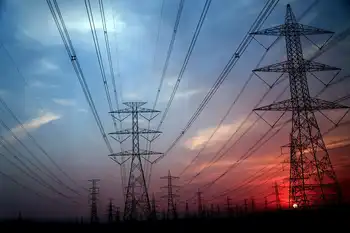Flip-flop on wind outrages industry
By Globe and Mail
Arc Flash Training CSA Z462 - Electrical Safety Essentials
Our customized live online or in‑person group training can be delivered to your staff at your location.

- Live Online
- 6 hours Instructor-led
- Group Training Available
Executives in the renewable sector say the province's dramatic reversal, which effectively killed offshore plans, is highly damaging to Ontario's reputation as a leader in renewable energy. It also risks denting investment in an industry that was on the upswing as a result of the province's green-energy policies.
The McGuinty government announced that it will not allow any offshore wind projects to proceed until further scientific research is conducted into its environmental impact. The surprise decision drew praise from turbine opponents who are concerned over health effects and visual blight, but scorn from environmentalists and businesses that support renewable power.
Even though the policy change does not affect onshore wind projects or other renewables such as solar power, the fact that the government changed its policy so suddenly on offshore wind is enough to scare off investors from green energy projects, said John Kourtouff, president of Trillium Power Wind Corp., which has been considering four large wind projects in the Great Lakes and has one in an advanced planning stage.
"This destroys Ontario's credibility globally," he said. "Nobody will touch Ontario for many years in renewables."
Ontario Energy Minister Brad Duguid said in an interview that despite the reversal, the government remains fully committed to "building out renewables." The province is determined to become a "clean energy global powerhouse," he said, and only a tiny fraction of green energy was going to come from offshore wind.
But other executives in the sector sided with Mr. Kourtouff, arguing that Ontario's decision could put a damper on investor enthusiasm.
"Anything can shake investor confidence, and there is really nothing worse than a government policy reversal," said John Keating, chairman of Alberta-based startup BluEarth Renewables Inc. and former chief executive officer of Canadian Hydro Developers Inc., which was Canada's largest independent renewable energy firm before it was bought by TransAlta Corp. in 2009.
The turnaround is especially problematic, Mr. Keating said, because Ontario was considered enlightened by environmentalists and developers. Now that reputation is in tatters.
"I was surprised and somewhat shocked, because the government has steadfastly supported its Green Energy Act since its introduction," Mr. Keating said. Now, there is "increased risk" that other changes might be made to the rules, he said. "It sends a bad signal."
Ian Kerr, vice-president of Canadian development at Brookfield Renewable Power Inc., BRC.UN-T said Ontario's "flip-flop" raises questions about the stability of the province's energy policies. "I can see some potential entrants, even in other sectors of the renewable industry, holding off on investment because of that," he said.
The one company that had already signed a contract to supply power to the Ontario energy grid from an offshore project has said little about its plans since the announcement.
"We're assessing our options," said Nancy Baines, finance director at Windstream Energy Inc., adding that the company was disappointed and surprised by the government's move.
Windstream had a contract to sell the province 300 megawatts of power from a series of turbines offshore of Kingston, although it had not yet gained approvals from Ontario's Natural Resources or Environment ministries. The contract is now dead.
For Trillium, a company built entirely on the prospect of constructing wind projects in the Great Lakes, the province's decision is nothing less than a disaster.
"They are destroying the entire industry," Mr. Kourtoff said. "This isn't a moratorium, this is a St. Valentine's Day massacre of the offshore wind industry in Ontario." The industry had the opportunity to be a leader in fresh water wind power, he said, and there was the potential to create thousands of jobs.
Mr. Kourtoff said he is considering legal action against the government if his company does not get some form of compensation from Ontario.
He said he thinks Ontario's decision was purely political, designed to appease voters concerned about wind power ahead of a provincial election, and had nothing to do with environmental concerns.
"If you are 28 kilometres out in the middle of the lake... and you're on bedrock, there are no environmental issues that are problematic here.











